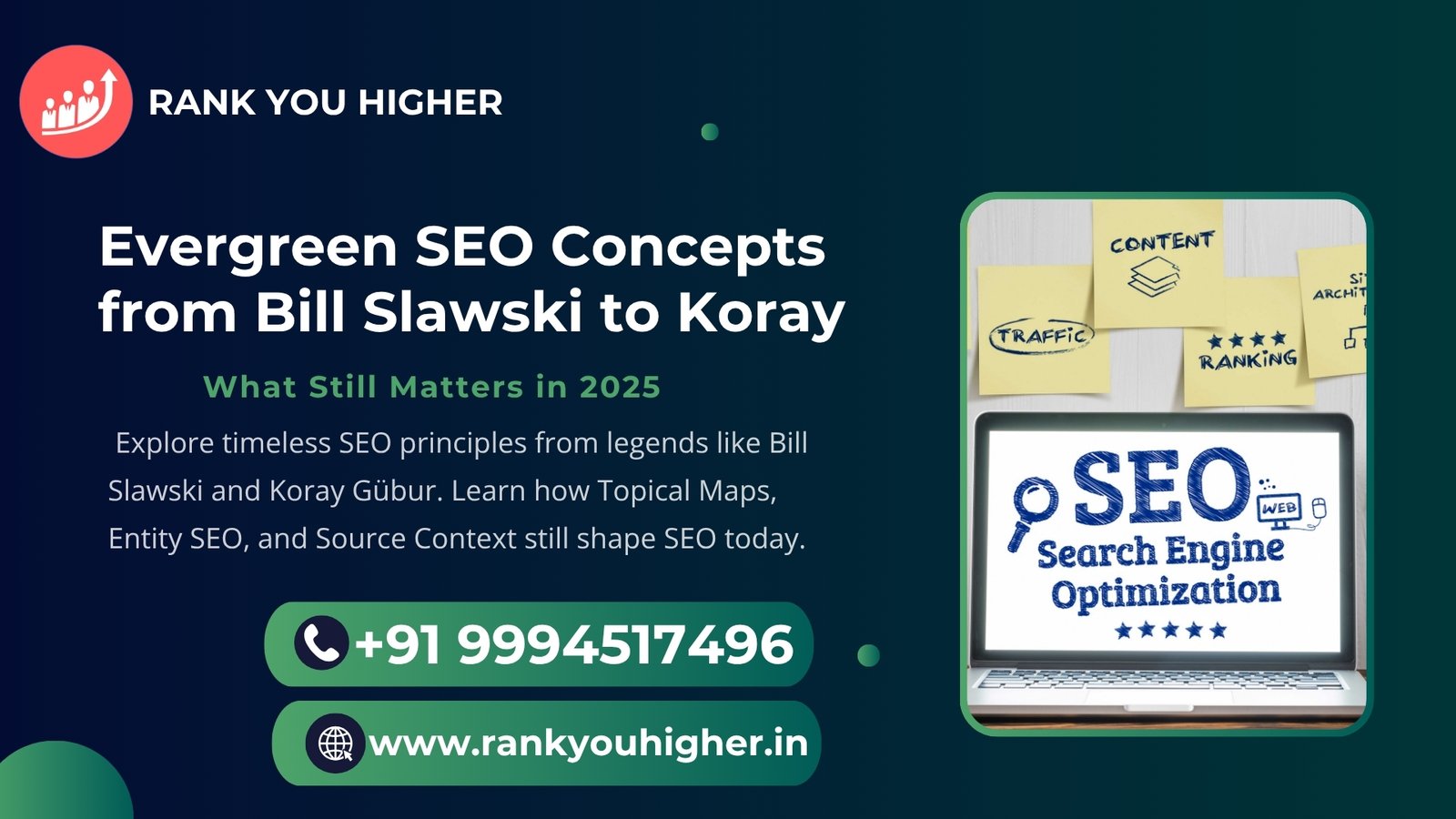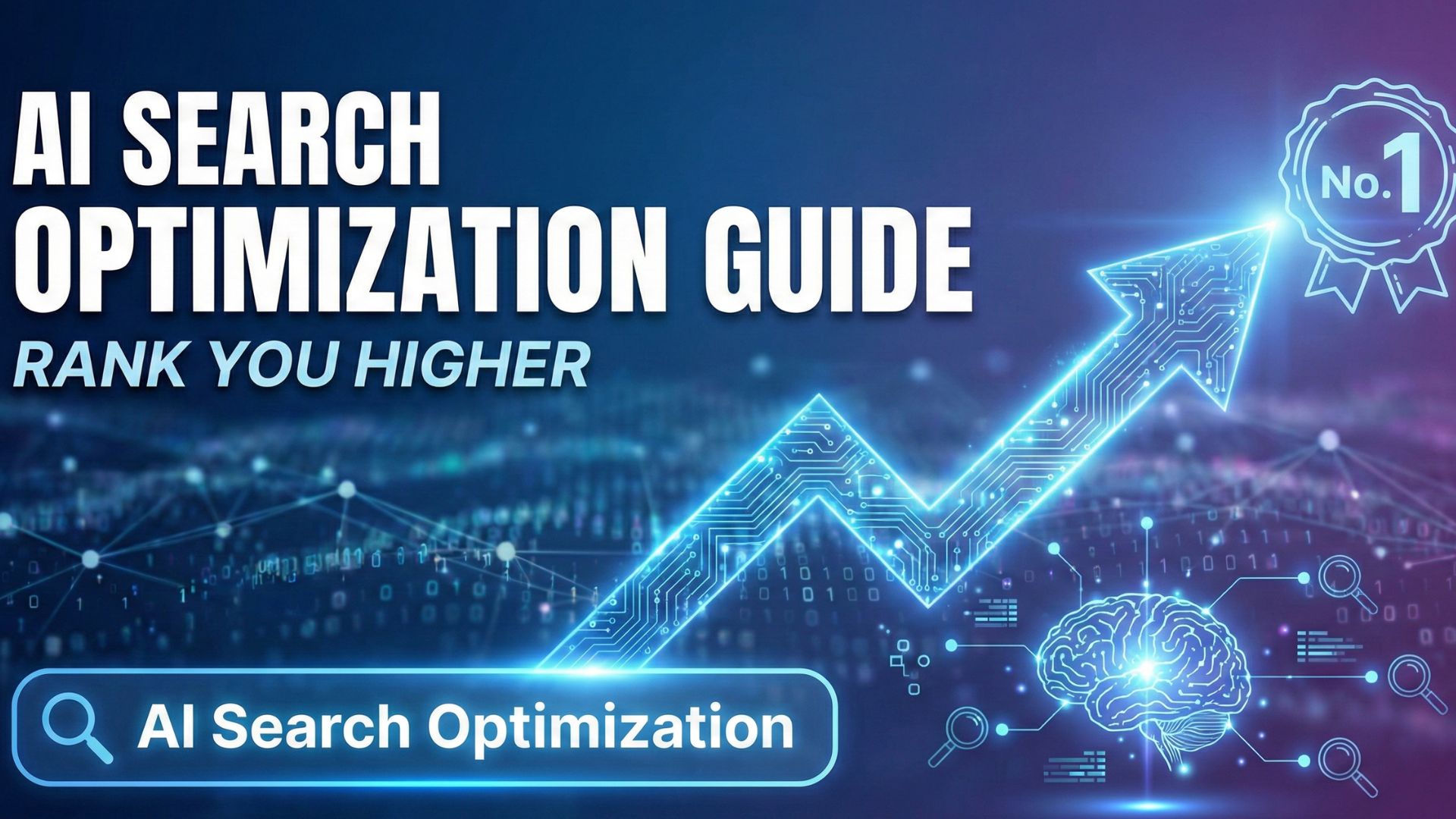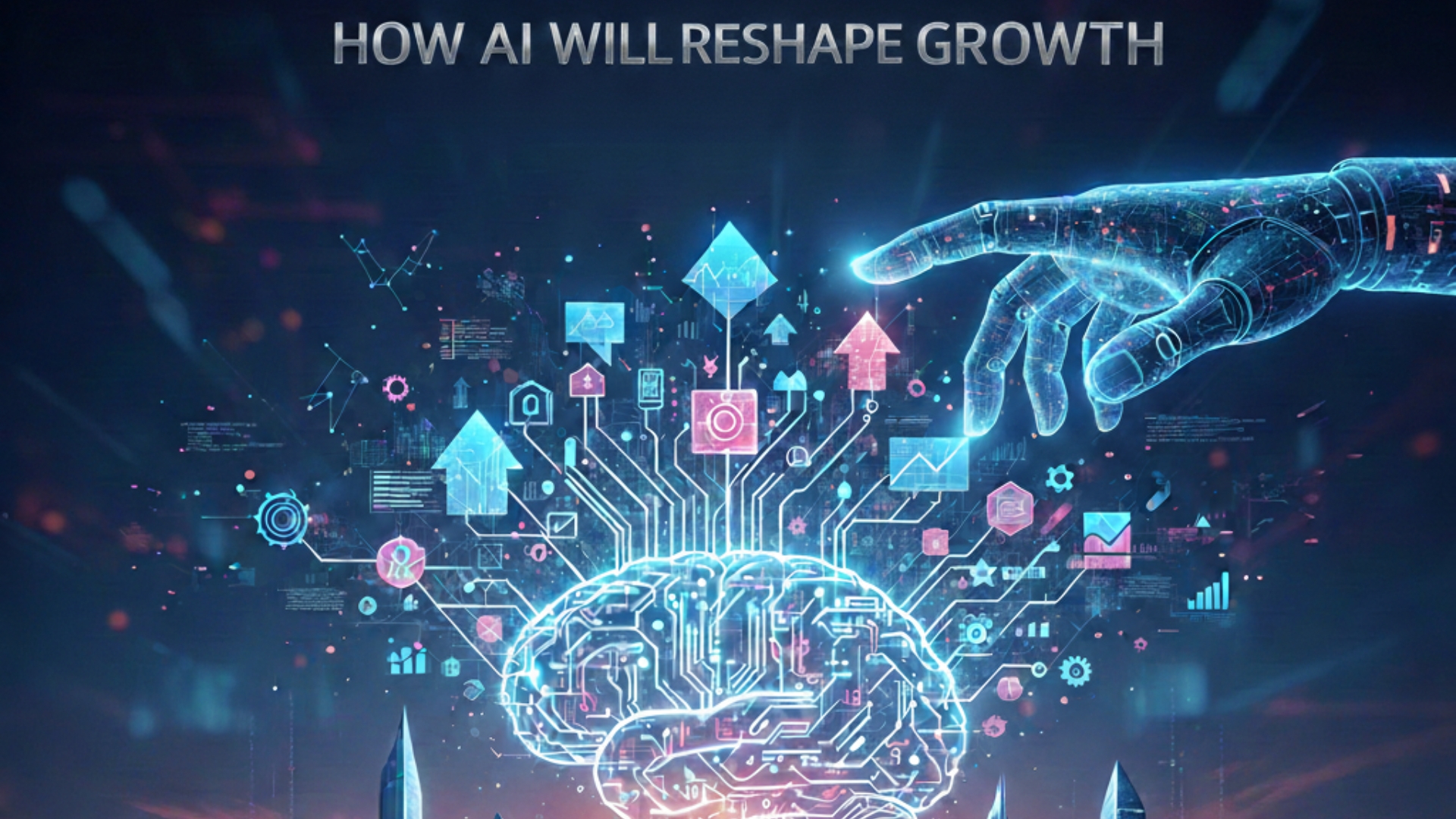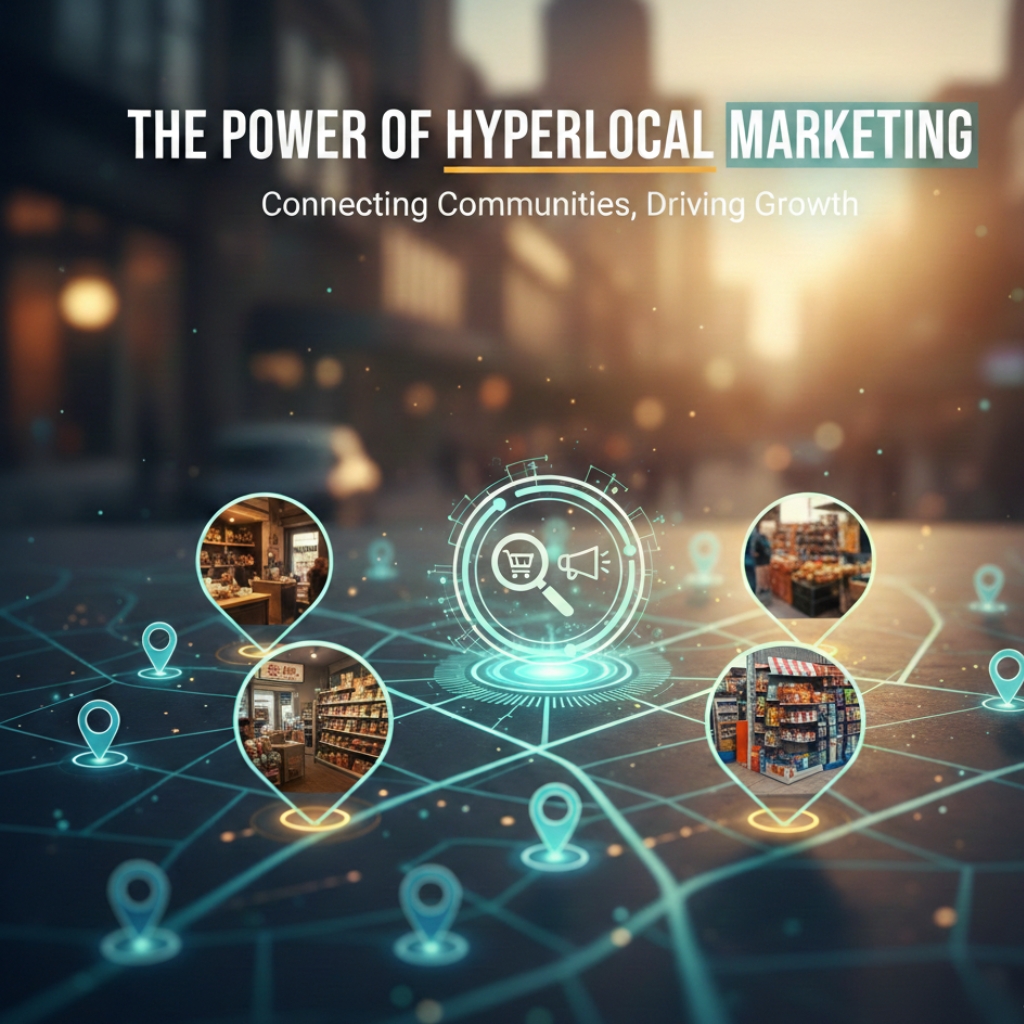In the ever-changing world of SEO, some principles remain powerful no matter how much the algorithms evolve. Even if search someday becomes fully driven by LLMs (Large Language Models), what Bill Slawski started and what Koray Gübur continues will never lose their value. These pioneers didn’t just chase rankings—they helped us understand how search works.
At Rank You Higher, a leading SEO company based in Madurai, we respect and follow these foundational ideas in our daily strategies. Let’s break them down in simple language for everyone to understand.
Table of Contents
Who Was Bill Slawski?
Who Is Koray Gübur?
6 SEO Concepts That Will Never Die
Source Context
Topical Maps
Entity-Based SEO
Taxonomy and Ontology
Content Formats
Boilerplate Content
Advanced Concepts That Are Not Always Practical
Final Thoughts: From Technical to Psychological SEO
Frequently Asked Questions (FAQs)
Who Was Bill Slawski?
Bill Slawski (1962–2022) was a respected SEO researcher and the creator of SEO by the Sea. He was known for analyzing Google patents and turning them into clear, actionable advice. Thanks to him, the SEO community began to look deeper into how search engines think. His legacy is the foundation of how we interpret Google’s algorithms today.
Who Is Koray Gübur?
Koray Gübur is a modern-day SEO researcher and the founder of Holistic SEO. He has expanded the scope of Semantic SEO with deep research, real-world application, and structured frameworks. He helps SEOs understand not only how to rank but also how to build authority and gain long-term trust.
6 SEO Concepts That Will Never Die (Explained in Depth)
1. Source Context
Your website must clearly convey what your business does, who it’s for, and how it earns revenue. Without this clarity, search engines can’t properly classify your site or confidently show it to users.
If you’re a real estate agency, for instance, the homepage should clearly say whether you build homes, promote plots, or act as a reseller. If you’re an educational blog, specify whether you’re offering free tips, selling courses, or something else.
When your source context is clear, Google knows when and where to place your content in search results. This builds trust, authority, and ranking consistency.
2. Topical Maps
Topical maps help you organize your content around themes and subtopics. Imagine you’re creating a website about digital marketing. Your topical map might include SEO, content marketing, paid ads, analytics, and social media.
Each of these main topics will have subtopics—for example, SEO might include keyword research, on-page SEO, link building, and technical SEO. This structure ensures that your site covers everything users (and search engines) expect within your niche.
A well-developed topical map leads to better interlinking, stronger topical authority, and easier expansion of content over time.
3. Entity-Based SEO
Entities are the building blocks of modern search. An entity is a uniquely identifiable thing—like “Madurai,” “Rank You Higher,” or “digital marketing.” Search engines now care more about entities and relationships between them than just keywords.
For example, when you write about “hotel rooms near Meenakshi Temple,” you’re not just targeting those words—you’re connecting the entity of the temple to your hotel business. This relationship helps Google understand your content and match it to relevant queries.
Optimizing for entities includes linking to related Wikipedia pages, using schema markup, and writing clearly about what each entity is and how it connects to others.
4. Taxonomy and Ontology
These two concepts shape the structure of your website:
Taxonomy is about how content is categorized—like blog categories, tags, product types, or services.
Ontology is about how those categories relate to each other.
For example, in a construction website, your taxonomy may have sections like “Residential Projects,” “Commercial Buildings,” and “Interiors.” Ontology goes a step deeper, explaining that “Residential Projects” include “Villas,” which may be related to a location like “Silaiman.”
A well-organized taxonomy and ontology help users navigate easily and help search engines fully understand your content scope.
5. Content Formats
Each type of user query deserves a format that best serves the information. If someone searches “benefits of gated communities,” a list works well. For “villa price comparison in Madurai,” a table is more effective. For storytelling or opinions, paragraphs work best.
Mixing the right formats (lists, tables, FAQs, headings) inside your blog or web page makes it easier for users to scan, stay longer, and trust your brand. This also improves Google’s understanding of your page’s purpose.
6. Boilerplate Content
This refers to repeated content sections across multiple pages, like footers, trust badges, customer service blurbs, or disclaimers. It ensures consistency and brand reinforcement.
Boilerplate content also improves internal linking and helps remind users of your value proposition, especially when it’s placed above the fold or in navigation menus.
For example, Rank You Higher uses a consistent footer that includes our business address in Madurai, contact info, and core services to reinforce brand trust and help local SEO.
Advanced Concepts That Are Not Always Practical
While Koray introduced many powerful ideas, not all of them are easy to use daily. Here are six advanced concepts with their challenges:
1. Semantic Distancing
Helps keep related content close together, but hard to manage without AI tools. Not needed for most small businesses.
2. N-Gram Optimization
Avoids repeating the same phrases. Useful, but overdoing it can make your writing feel robotic.
3. Query Session Personalization
Adjusting content for every type of user journey is ideal, but very complex and time-consuming.
4. Entity Query Networks
Mapping every connection between related topics sounds great but is difficult for regular content creators.
5. Fine-Grained Semantics
Analyzing every sentence for variation is good for AI training but too much work for regular blogs.
6. Absolute Contextual Completeness
Trying to cover everything in one post? Great idea in theory, but you’ll burn out before finishing one article!
Final Thoughts: From Technical to Psychological SEO
What Koray teaches us is not just about search engines but also about people. The focus is shifting from “how the algorithm works” to “what the user actually needs.”
Modern SEO blends technical excellence with deep empathy for user intent. That’s why we believe in adapting proven concepts like Source Context, Topical Maps, and Entity SEO—but with a flexible, human-first approach.
Use the research from legends like Bill and Koray as inspiration, not strict rules. Pick the methods that suit your goals and resources.
At Rank You Higher, we apply these proven concepts in real strategies. From Topical Maps to Entity SEO, we focus on real growth—ranking your business where it matters: search engines and the user’s mind.
Whether it’s keyword strategy or full-scale digital marketing, our team in Madurai is here to help businesses grow smarter, not harder.
Frequently Asked Questions (FAQs)
1. What is the most important SEO concept to focus on in 2025?
The combination of Source Context and Topical Authority. Clearly defining your business and building out complete topical clusters makes the biggest long-term impact.
2. Is entity-based SEO only for big websites?
Not at all. Any website can benefit by clearly identifying entities (like locations, services, or brands) and structuring content around them.
3. Are topical maps the same as sitemaps?
No. A sitemap lists your URLs, but a topical map organizes content ideas based on topics and subtopics for strategic planning.
4. How long does it take to see SEO results using these methods?
With proper implementation, results can start appearing in 3–6 months depending on competition, content depth, and technical factors.
5. Does Rank You Higher provide monthly SEO plans?
Yes. We offer scalable SEO packages based on business goals, whether you’re just starting out or expanding to national and international visibility.







